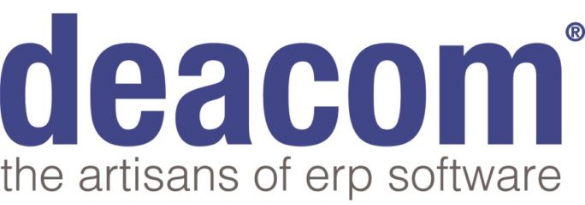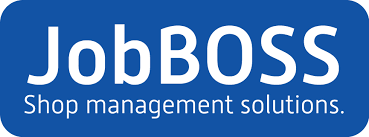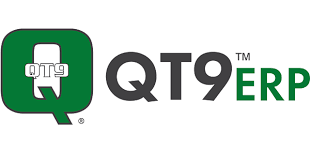Manufacturing companies have highly specialized requirements, so they can benefit from manufacturing ERP software in many ways.
Manufacturing ERP software can give your company a competitive edge by helping maintain a proper workflow to meet your customers’ demands. Save time and money by managing all critical aspects of your manufacturing processes in one centralized location.
Manufacturing ERP software is the technology that businesses employ to track critical processes across their operations. Manufacturing organizations can now monitor everything from inventory flow to HR data to supply chain concerns much more easily due to ERP technology.
Manufacturing companies operate in a very time-sensitive setting with numerous moving parts. Failure in one of these processes can result in failure in others since they are interdependent. Therefore, a single costly error might put the entire company at risk.
Manufacturing companies utilize ERP software systems to break down process silos and control all aspects of their operations from a single command center in order to better organize these.
We’ve put together a list of the top 10 best manufacturing ERP software available right now, along with the pros and cons for each, to help you choose one that is best suited for your business.
Top 10 Best Manufacturing ERP Software
| Brand | Starting price | Best for |
|---|---|---|
| 1. Oracle NetSuite | -$999/month | Scalability |
| 2. Acumatica | $1,000/month | Range of Solutions |
| 3. Infor Syteline ERP | $150/month | Industry-Specific ERP Solutions |
| 4. Genius ERP | $1500 – $3,000year | Small and Medium-Sized Custom Manufacturers |
| 5. Deacom | Based on requirement | Chemical Manufacturers |
| 6. BizNext ERP | Request quote | Configuration Options |
| 7. JobBoss | Request quote | Small Manufacturers |
| 8. Odoo | $24/month | Equipment Efficiency Reports |
| 9. FreshBooks | $6-$20/month | Accounting |
| 10. QT9 ERP | Free | Ease of Use |

1. Oracle NetSuite – Best for Scalability
Pricing: Oracle NetSuite doesn’t provide pricing options on its website. Please visit Oracle NetSuite’s website to get a free product tour and discuss pricing options geared toward your specific needs.
Oracle NetSuite is one of the first true ERP solutions. Oracle NetSuite is a cloud-based manufacturing ERP solution equipped with CRM, product data management, production control, supply chain, scheduling, planning, procurement, quality management, and shop floor control functionalities.
Additional features will help you build out automations to minimize human error and boost quality across your entire workflow. Even though Oracle NetSuite has such an impressive set of useful tools, the software is very easy to use.
| Pros | Cons |
| Highly customizable and scalable features | Pricing and add-on costs |
| Excellent business intelligence and financial management tools | Some limitations to customer support services |
| Great reporting capabilities | Limited customization |
| Easy to use | – |
| Twice-annual updates | – |
| Powerful budgeting tools | – |
| Flexible reporting module | – |
| Intuitive user interface | – |
>>MORE: Accounting Software for Manufacturing Businesses | MRP Software | Project Management Software for Manufacturing | Manufacturing Execution Systems

2. Acumatica – Best Range of Solutions
Pricing: Acumatica pricing isn’t available online. Pricing depends on the applications and resources you want to use. You can request a product demo video on Acumatica’s website.
Over 8,000 companies, including General Motors, use Acumatica’s cloud-based manufacturing ERP software. Acumatica has many adaptable software editions for businesses of all shapes and sizes.
Acumatica’s usage-based pricing also helps keep costs low. The software has a wide range of uses, such as project accounting, financial management, business intelligence, inventory management, and order management. Manufacturing businesses will surely benefit from Acumatica’s functionality for manufacturing management, inventory, order management, and financials.
| Pros | Cons |
| Easy to use interface | Implementation can be more difficult because of the wide range of features and customization options |
| Flexible deployment options | Learning curve |
| Industry-standard customization tools | – |
| Flexible upgrade schedule | – |
| Lots of useful features | – |
| Many customization options | – |
| Usage-based pricing | – |

3. Infor Syteline ERP– Best Industry-Specific ERP Solutions
Pricing: Infor doesn’t display prices online. Contact their sales team to request a quote and for a demo of the software.
Over 68,000 organizations across the globe use Infor’s ERP solutions. Infor Syteline offers advanced scheduling and planning, quality management and quality control, field service, product lifecycle management, project management, and financial management.
Other features include personalized pages, role-based interfaces, agile innovation, optimized purchasing, warranty tracking, and embedded analytics. Infor Syteline’s deployment process could take up to 16 weeks, but that can be expected for larger organizations. Infor’s customer service is exceptional, providing around-the-clock access.
| Pros | Cons |
| Deep functionality for manufacturing organizations | Some functionality in Infor Syteline or CloudSuite Industrial portfolio have not been fully migrated to the Cloud |
| Highly customizable solution | Reporting and analytics could be challenging to figure out at first |
| Robust configure, price, quote functionality | – |
| Flexibility for both on-premise and cloud deployments | – |
| Extensive Infor Syteline training modules | – |
| Great access to Infor Syteline support and user guide | – |

4. Genius ERP– Best for Small and Medium-Sized Custom Manufacturers
Pricing: To download a pricing guide and speak with a Genius ERP sales representative, please visit their website.
Industry experts specifically designed Genius ERP for custom manufacturers. The software is known for helping small to mid-sized custom manufacturers handle make-to-make order, custom-to-order, engineer-to-order, and assemble-to-order manufacturing.
The software provides manufacturers with the tools needed to increase productivity, reduce costs, and improve the performance of production sites. Genius ERP includes a CRM and a production engineering module that integrates with CAD and SOLIDWORKS software.
| Pros | Cons |
| Wide variety of useful tools | Integrated accounting module could be improved |
| Ease of communication between modules | Shortage of formulating quantities |
| Highly customizable | Shortage of built-in analytical tools |
| Helpful and informative implementation team | – |
| Easy to use | – |
| Excellent lifecycle engineering feature | – |
| Great material planning and control features | – |

5. Deacom – Best for Chemical Manufacturers
Pricing: Please visit Deacom’s website to schedule a demo and inquire about pricing options.
Deacom is a fully integrated solution with all the capabilities needed to streamline your manufacturing operations. Deacom offers a fixed bid implementation, which is beneficial for those concerned about sticking to a set budget. The software includes warehouse management, formulation, inventory management, point-of-sale, CRM, direct-store-delivery, forecasting, and eCommerce.
| Pros | Cons |
| Flexible system | Timing of upgrades |
| “No bolt-on” approach allows users to find all resources needed within the software without customization | CRM usability can be difficult |
| Accurate reports | Prone to system crashes |
| Straight-forward and intuitive interface | – |
| Excellent set of features | – |
| Great tech support availability | – |

6. BizNext ERP – Best for Configuration Options
Pricing: Please visit BizNext’s website to request a quote for their manufacturing ERP software.
BizNext ERP will help you gather, store and manage knowledge from business activities. You can gain real-time control and visibility of your business processes by using this software. Some key features include workflow management for documents related to sales, purchases and requisitions, financial accounting for fixed assets, payables and receivables, and an external portal for facilitating communication between companies and clients.
Other useful features that BizNext ERP offers are an automated purchase management system and predictive analysis, and business intelligence for sales forecasting and analyzing past trends.
| Pros | Cons |
| Standalone modules to integrate with existing ERP infrastructure | Customer support could be improved |
| External login portal to track third-party interaction | Lacks a few useful features |
| Lesser implementation cost than other competitors | – |
| Configurable system | – |
| Highly secure system | – |
>>MORE: Enterprise Resource Management Software | Accounting Software for a Holding Company | Distributor Accounting Software Of 2022 | Facility Management Software

7. JobBOSS – Best for Small Manufacturers
Pricing: JobBOSS offers a free trial and three different packages for its ERP software. Please contact ECI Software Solutions for pricing options.
JobBOSS is a flexible ERP manufacturing software for small manufacturers. JobBOSS helps small manufacturers keep track of inventory and purchase history. Users can obtain intuitive insights related to profit margins using this software.
The software has a wide array of useful features, such as a work orders generator, jobs tracking, and advanced set-up and routing options. JobBOSS makes changing and updating jobs after they have started easier and it also notifies you instantly in case there are shortages in stock or inventory.
| Pros | Cons |
| The software helps users monitor workload on different job centers | Lack of customization options |
| Supports automatic creation of Request for Quotes and purchase orders | Some features could be improved |
| Android/Apple app for tablets that can be used for data collection | The quality module could be updated |
| Easy to use | – |
| Helpful and readily available tech support | – |
| Accurate and useful reports | – |

8. Odoo – Best for Overall Equipment Efficiency Reports
Pricing: You can try Odoo’s manufacturing ERP software for free. For pricing options, please contact an expert via their website.
Odoo is used by over 7 million users. With Odoo, you will be able to monitor different manufacturing processes and make decisions in real-time. Odoo’s software integrates with a variety of tools meant for easy maintenance and assuring quality.
Some key features include a work center control panel for registering production and conducting quality checks, and a minimum stock rule for better inventory management and avoiding shortages. In addition, users can send out alerts to the workforce and showcase worksheets, as well as automate the process of procurement of materials.
| Pros | Cons |
| Excellent Overall Equipment Efficiency reports feature | Difficult initial implementation |
| Ability to customize dashboards | Lack of technical and functional documentation |
| Easy to set up | Add-on costs |
| Well-integrated modules | – |
| Intuitive user interface | – |
| Great tagging feature allows users to easily filter accounts and keep track of workloads | – |
| Affordable | – |

9. FreshBooks – Best Accounting Tools
Pricing: FreshBooks offers four different packages for its software. The Lite package is $6/month for up to 5 billable clients, the Plus package is $10/month for up to 50 billable clients, and the Premium package is $20/month for unlimited billable clients. For businesses with more complex needs, FreshBooks offers custom pricing.
FreshBooks is a robust accounting software that helps manufacturers spend less time on bookkeeping. The software makes accounting quicker and easier than ever by letting users send invoices, automatically track expenses, and stay up-to-date with their customers.
Users can also secure their data in the FreshBooks Cloud. You will be able to access FreshBooks from any device you choose. FreshBooks comes with a vast amount of integrations, helping you extend its functionalities with third-party systems.
| Pros | Cons |
| Tools allow users to collect payments quickly and easily | Limits on clients and users |
| Robust double-entry accounting | No bank reconciliation or accountant access in the Lite package |
| Ability to create an invoice template that can be sent automatically | No quarterly tax estimates |
| Ability to brand invoices with your company’s brand, color, and logo | – |
| Built for tax management | – |
| Great project management tools | – |
| Excellent customer support, available by phone and email | – |
| Good invoicing services | – |
| Time tracking and mileage tracking included in all plans | – |

10. QT9 ERP – Best for Ease of Use
Pricing: Please visit QT9 ERP’s website to schedule a demo and get a quote. You can also try QT9 ERP for free for 30 days.
QT9 ERP software is flexible, scalable, and easy to use. The software auto-generates PO’s, and enables demand breakdown and scheduling management with real-time data analytics. It includes over 18 connected modules for Bill of Materials, supplier management, customer management, accounting, sales orders, shipping, inventory control, invoicing, job scheduling, and shop floor management. The software also includes lot and serial number traceability.
| Pros | Cons |
| Easy to use | Some features could be improved |
| Over 18 pre-installed modules | Some navigation menus require a bit more understanding to fully utilize |
| Constant updates and improvements | – |
| The support team is good with integrating feature requests | – |
| Easy implementation | – |
Questions to Ask Before Purchasing Manufacturing ERP Software
How much ERP does my company need?
Consider your company’s size and growth plans before deciding how much functionality you should invest in.
Will your historical data be migrated over to the new system?
Most solutions easily transfer records and beginning balances. However, migrating particular sets of data could often be expensive. The most cost-effective approach is to start new with balances while keeping historical data for reference.
What is the best manufacturing ERP software for my business?
A lot of manufacturing ERP software offer the same core functions. A growing firm should consider things like Built for Cloud, Scalability, Mobility, and Total Cost of Ownership. Another important thing to consider is the partner network that deploys and optimizes the ERP software. A great manufacturing ERP software provider will also be committed to R&D spending, support, partner requirements, and badging.
What is included in your manufacturing ERP software and what is “extra”?
Most ERP solutions come in packages that are built around specific industry needs. Implementation services, covering detailed discovery, setup, configuration, training, and go-live support are often included. Modifications, customizations, and integrations with other tools could cost extra. To avoid paying more than you expect, ask for input from all teams that will use the system. Scale the system up or down based on your budget.
How long does it take to deploy your manufacturing ERP software?
The time it takes to deploy a new manufacturing ERP software can vary. Some deployments can take less than a few months while others can take up to a year. Deploying a manufacturing ERP software is based on your company’s complexity and your team. Deployment delays are often caused by you and your team’s capacity to gather data, provide feedback, and test the solution. Try allocating time each week for team members to focus on contributing to deploying the new software.
